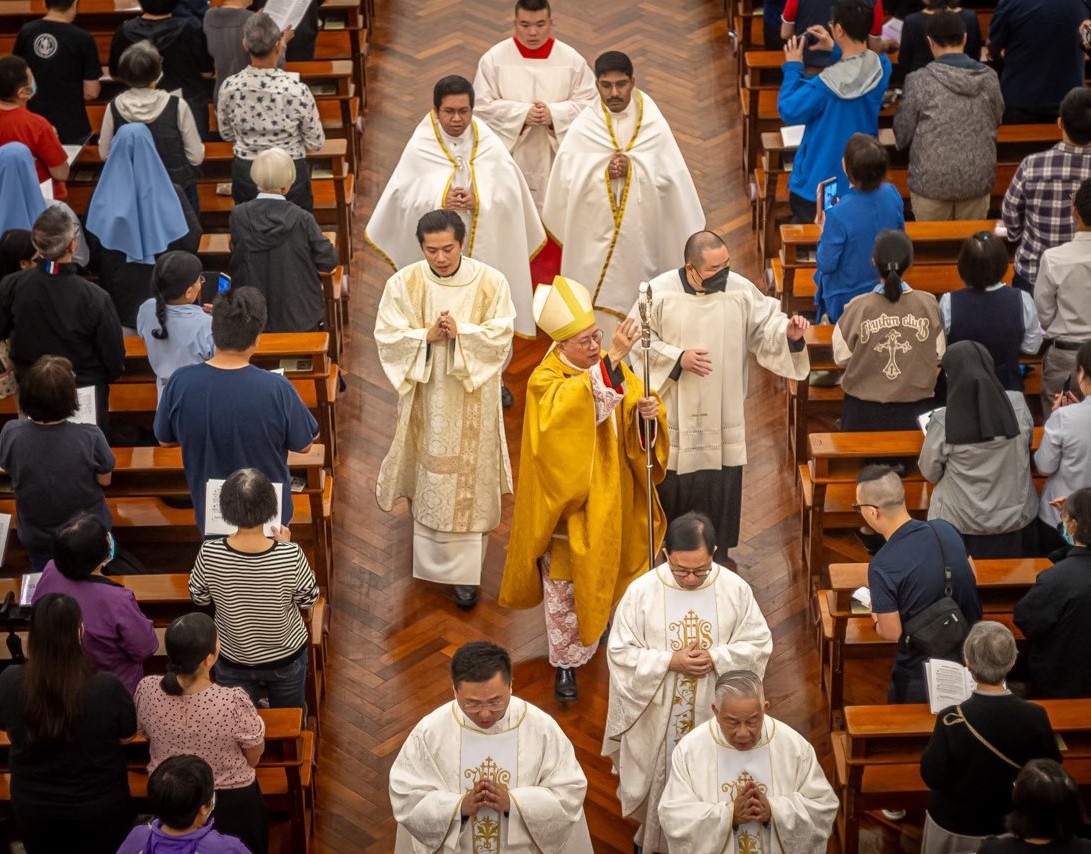Fr Paolo Consonni, MCCJ
O’Clarim EASTER 04 Sun Year B
“I am the good shepherd. The good shepherd lays down his life for the sheep” (Jn 10:11)
In these past weeks, we have heard the narration of the Acts of the Apostles about the steady increase of those who were baptized into the new community of believers. But we have also come to know that the mission of the early Church was often met with opposition and even persecution. The New Testament emphasizes the fact that, far from becoming discouraged, the disciples realized that Jesus did not abandon them after His Resurrection; on the contrary, He continued to be present and gave them strength and courage to face adversity. What Jesus had told them during His earthly life, “I am the Good Shepherd,” stayed in their minds and hearts. No wonder that among the earliest visual representations of Jesus in the catacombs, during the ferocious persecutions by the Roman Emperors, the most common were the images of Him as the Good Shepherd carrying a lamb on his shoulders.
Nowadays, while facing this dangerous world, we too need the Good Shepherd to lead and guide us to ever-greener pastures and living running waters, as Psalm 23 proclaims, and to protect us from all harm and evil. Figuratively, in a moment of danger or at the time of our death. But also literally, because the planet is dying and we need the Risen Christ to guide humanity toward a “greener” future, where the respect for the dignity of human beings is coupled with respect for nature.
Traditionally, the fourth Sunday after Easter is called the Good Shepherd Sunday and we pray for vocations to the priestly and consecrated life. A good shepherd leads, feeds, nurtures, comforts, corrects, and protects his flock—responsibilities that in a particular way (but not exclusively) belong to the clergy and consecrated people.
In this Sunday’s Gospel (Jn 10:11-18), Jesus specifies what constitutes a “good shepherd”, that is the availability “to lay down one’s life for the sheep”. This important remark cannot be taken for granted in our own period of history characterized by a crisis of leadership at every level. We see how authority, whether in big structures or families, is used to pursue self-interest, exactly like “the mercenary” mentioned by Jesus who is not so much interested in the welfare of the sheep, but only in his own. Jesus instead knows exactly what the sheep need because, paradoxically, He is both Shepherd and Sheep. He is the “Lamb of God” offered on the cross for the redemption of the world: “I know my own and my own know me” (v. 14).
All who are baptized are called to become, in one way or another, shepherds, because we all share a common vocation: to care for others. We normally become shepherds through our profession and our relational life, especially in the family.
I lead a weekly Bible Sharing class with some teachers. I am often amazed at how the Gospel is closely related to the teaching profession and education in general. In a way, Jesus formed the apostle to become true educators, and therefore, loving shepherds.
Jesus did not, out of fear, teach the apostles to stay in a safe place away from danger. He instead sent them into the four corners of the world, a place which He knew would be hostile to them. He sent them out to interact with the sheep that do not yet belong to His fold. (v. 16) This is exactly what good teachers and other educators normally do: besides warning students about the dangers to be avoided and possibly shielding them from what could harm them, they also must equip students with the wisdom and skills necessary to make good decisions with a spirit of initiative, which might include taking risks. The word “education” comes from the Latin word “e-ducere”, which means “to lead out”. A good educator should encourage their students to get out of their comfort zones and be able to take risks.
The same can be said of parents. While it is natural to want to protect one’s children from pain, failure, and danger, it is also important to understand that these experiences are crucial for their growth. Parents are good shepherds not only when they protect and guide their children, but also when they allow their children to take risks and take responsibility for their actions, which means exposing them to some degree of suffering.
But the willingness to lay down one’s life for others is something young people should first see in their educators, in the passion and commitment they put into their profession and in their lives. Only then might young people become more sensitive to understanding what vocation the Risen Christ, the Good Shepherd, is calling them to.


 Follow
Follow


